THE REFORMATION COMMUNITY UNIVERSITY CHAPTER PROGRAM (RCUC)
A youth-centred program that provides young people with access to employment, leadership opportunities, mentorship opportunities, industry-specific problem-solving avenues, and resources for self-actualization.
The RCUC Program is a Pan-African Youth Empowerment and Leadership Development Initative developed by Reformation Community to cultivate an ecosystem where emerging student leaders drive transformative innovation and fostering community development
This comes as a response to the growing challenges posed by Africa’s rapidly expanding youth population and the critical shortage of skilled professionals needed to harness this demographic potential.
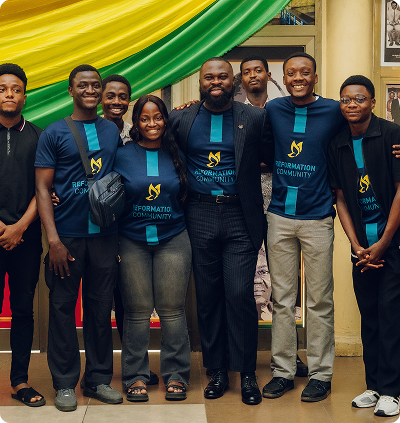
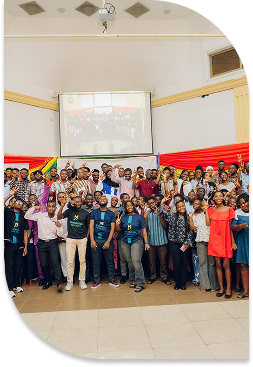
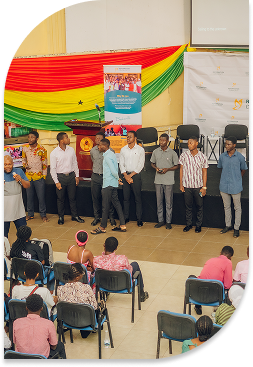
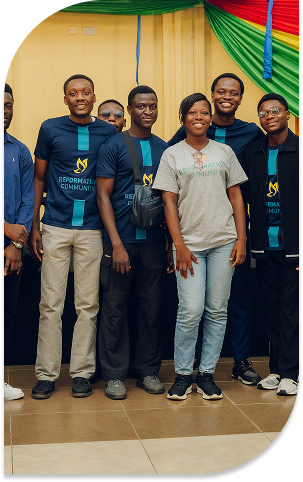
Key Features
- Annual Reformation Community Leadership Summit
- <span data-metadata=""><span data-buffer="">University-Based Industry Challenge Competitions
- Mentorship & Leadership Development Program
- Collaborations with top firms to provide job placements and career development opportunities
- Leadership and Entrepreneurship Training
- Community of like-minded youth ready to make impact across Africa
- Youth Led Social Impact projects being implemented across Africa
The Journey So Far
- October 2023
The program was launched in October 2023 in Central University in Ghana with 15 members
- December 2023
The first Conference was held, bringing together a 100 young people.
- March 2024
University Chapters implemented in University of Ghana, KNUST and
Wisconsin
- June 2024
First pitching competition organized for AfroPark Health Tech event to link students to jobs.
- September 2024
University Chapters implemented in UCC, Regent University and Ashesi University.
- October 2024
Event organized in collaboration with the London School of Economics which gathered 80 Diasporan Students
- November 2024
The second conference was held,
gathering 250 participants from 8
universities in Ghana and 180
participants from across East Africa
- February 2025
20 interviews conducted for University
Chapter Presidents from Mautitus,
Kenya, Rwanda, South Sudan,
Ethiopia and Uganda.
Chapters by Countries
So far countries we have reached out to and have active
chapters ongoing
GHANA MAURITUS KENYAH RWANDA ETHIOPIA SOUTH SUDAN UGANDA

The Journey Ahead
Over the past year, our rapid growth has highlighted our immense potential to engage Africa’s vibrant youth population. Moving forward, we aim to;
- Expand Geographic Reach
- Strengthen Leadership Development and Mentorship Programs
- Address Youth Unemployment Through Challenges and Skill Development
- Leverage Technology for Scalability and Inclusivity
- Enhance Monitoring, Evaluation, and Learning (MEL)
- Foster Collaboration and Advocacy at International Forums
- Raise $1 million in funding by 2027 to support program expansion and operations.
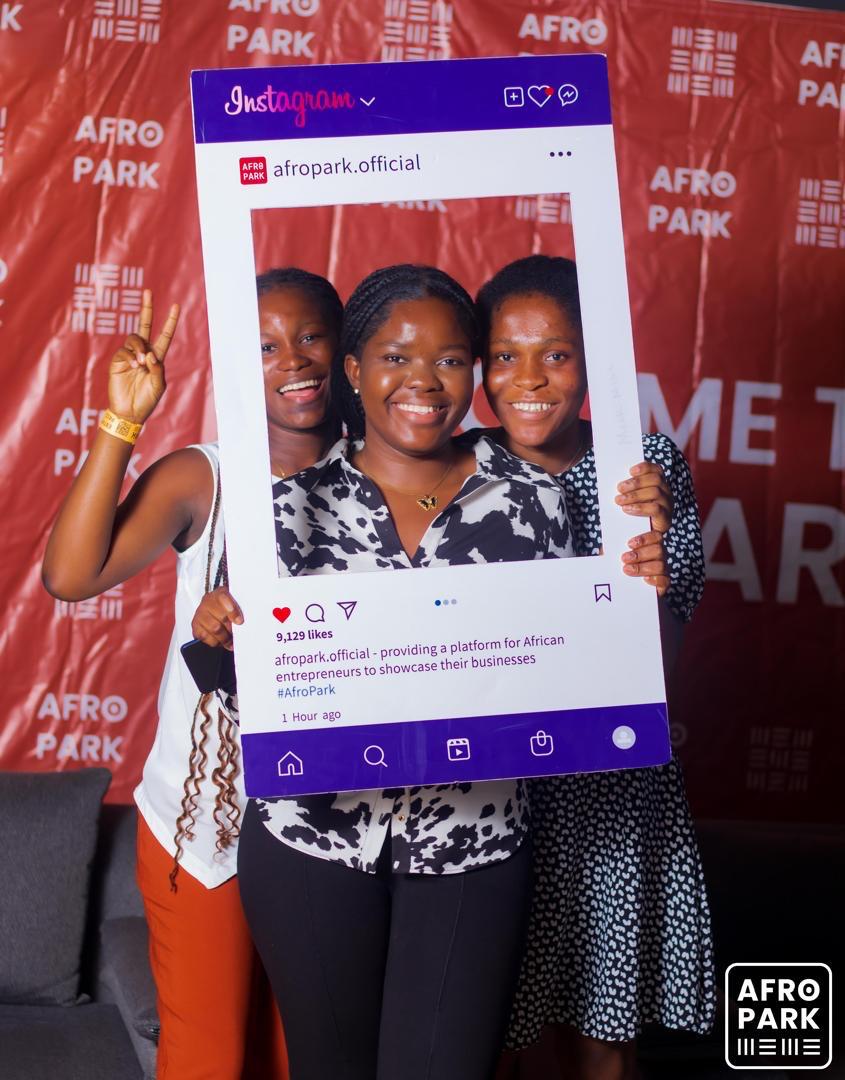
Impact Projection

A 5% decrease in Africa’s youth unemployment by 2050
The RCUC Program is designed to directly impact one million young people by providing them with the resources and skills to implement on average, 10,000 social impact projects across Africa by 2050.
Reaching 1 million youth requires engaging 40,000 young people annually. Of these, the target is for at least 1%—or 400 individuals each year—to successfully launch grassroots projects, sustaining this impact until 2050.

